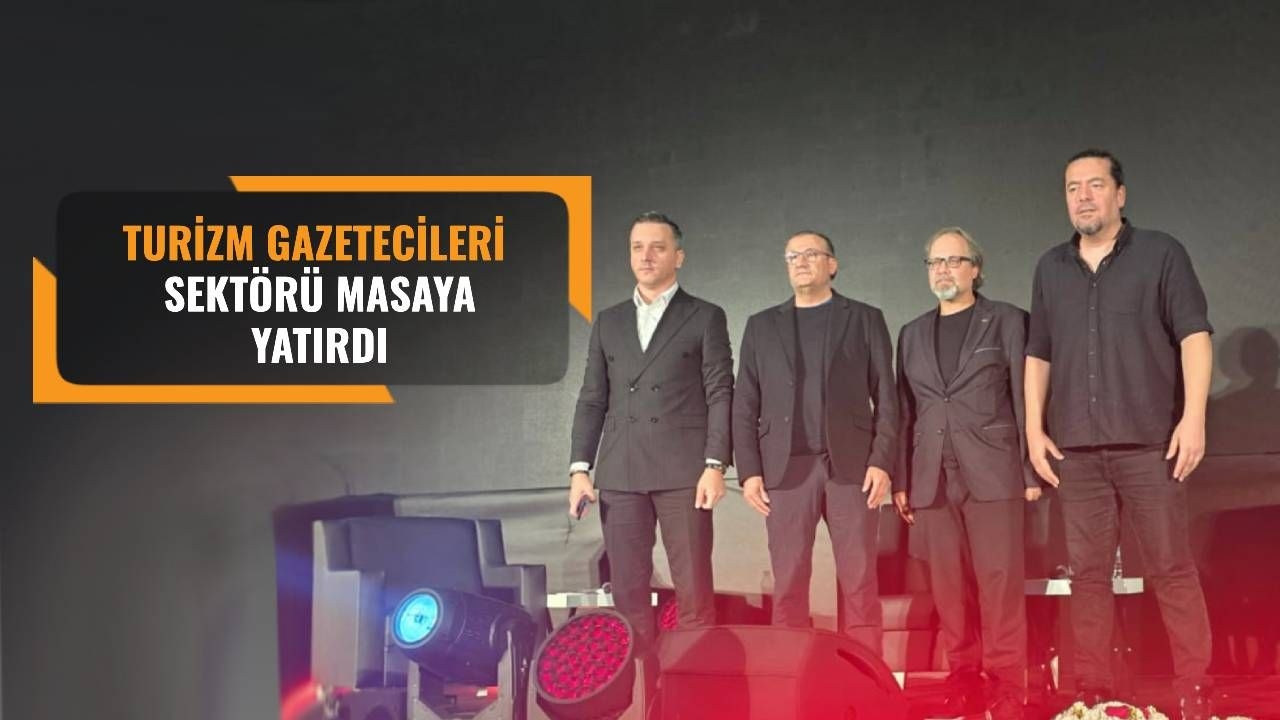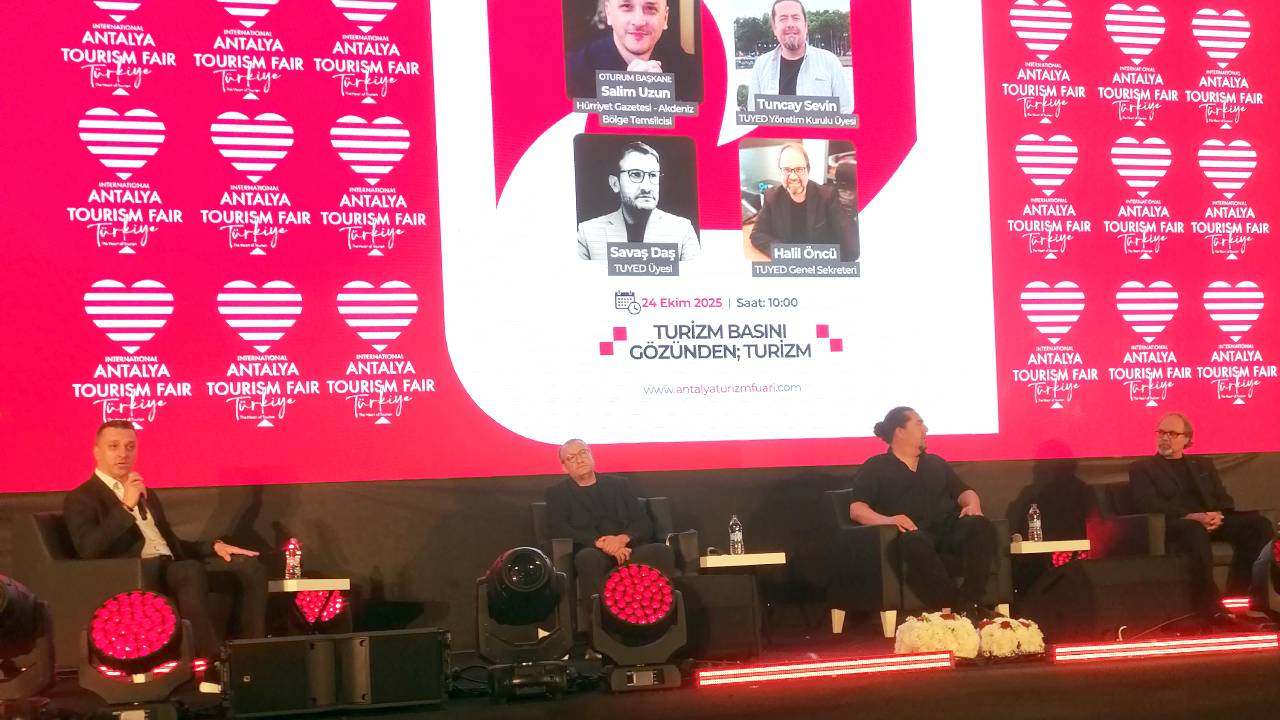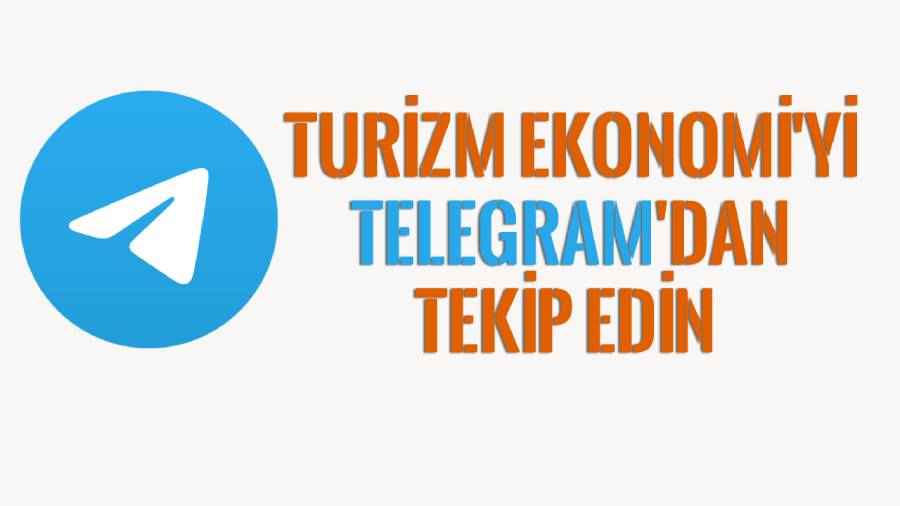Savaş Daş: You can't do the same things and get different results.

A panel titled " Tourism Through the Eyes of the Tourism Press " was held as part of the Antalya Tourism Fair ( ATF2025 ), moderated by Hürriyet Newspaper's Mediterranean Regional Representative, Salim Uzun . Participants included Halil Öncü, Secretary General of the Turkish Tourism Writers and Journalists Association (TUYED) and Editor-in-Chief of the Tourism File; Tuncay Sevin, TUYED Board Member and Tourism Today News Director; and Savaş Daş, TUYED Member and Editor-in-Chief of Tourism Economy .
Savaş Daş, a member of TUYED and editor-in-chief of Tourism Economy, likened the tourism media to the nerve endings of the sector, saying, “Our approach to sector news is definitely different from the national media. The fact that 60 million tourists have visited Turkey isn't the main news item for us. It's about the status of the markets within the 60 million, which have decreased and which have increased. Where trends have shifted, what are the expectations… We differentiate ourselves from the national media by covering these and similar topics. That's why we have a small but qualified readership. Our readership is also the sector's decision-makers and opinion leaders. They open a tourism news portal every morning, read it, and follow it. They strive to guide their own sector and businesses.”
“A ‘our children’ relationship should not be established between the tourism media and the sector.”Daş, noting that the tourism press both feeds off the tourism sector and feeds it, said, “The tourism media is also the sector's lobbying force against the public. It emphasizes the importance of this sector to the public. However, the relationship between the tourism media and the sector is not at a good level. We have some shortcomings, both our own and the sector's own. We operate on a tightrope. The people we work with are also our readers. We must establish a careful relationship with the sector. They shouldn't view us as 'our children.' We must carefully maintain and defend this tightrope.”
Savaş Daş , noting that technological advancements have made accessing news much easier, said, “Technological advancements have made accessing news easier, but they also lead to a degradation of quality. A lot of news is emerging from many places at the same time. We need to feed from this, but we also need to specialize a bit more. We must keep pace with the times, yes, but we must also maintain the quality of our news.”
You can't do what everyone else does and expect different results.”Daş emphasized that Türkiye consciously began promoting tourism in the 1980s, but the situation has since changed. He said, “Turkey has sacrificed its most beautiful bays, towns, beaches, and natural beauty to tourism. The country's natural resources are being exploited ruthlessly in the name of tourism. The government must regulate tourism. You say we should expand tourism to 12 months and all 81 provinces, yet hotels continue to be built in Antalya. While "quality tourists," while a poor term, are actually wealthy tourists. You might call them upper-income or wealthy tourists, but quality isn't measured by money. As they call it, you need to create "quality tourism for quality tourists." You can't just do what everyone else does and expect different results. The facility you establish must benefit the local community. Tourism that doesn't benefit the local community isn't tourism, it's commerce, and technically, it's no different from selling fish at a stall. A genuine, not just lip service, connection must be established between tourism and society. This is how you can achieve sustainable and genuine tourism.”

Halil Öncü, Secretary General of TUYED and Editor-in-Chief of the Tourism File , began his remarks by stating that the tourism press are the luckiest journalists in the industry. "Everyone looks at us with envy," he said. "Everyone who sees me says, 'Man, you travel so much.' We also get the opportunity to visit the places we go to report on. We have the opportunity to see things many people don't. We need to make the most of it. We tend to be a bit more involved in the business. We try to reveal what general managers, agencies, and tour operators think. Of course, we get tired doing this, but we also have a lot of fun. If I ask you where Turkey's tourism capital is, some say Antalya, others Istanbul. I can say that working in these two cities is easier in terms of transportation. It makes reporting more comfortable for us."
“I particularly draw attention to environmental and water issues.”Öncü, noting that he particularly emphasizes environmental and water issues in his writings, said, “I place great importance on the environment and water in my writings. It rained yesterday, and we were very happy about it. We haven't seen rain like this in Antalya in a long time. In Bodrum, people were hauling water with water trucks. Tourism professionals have made a decision not to empty their pools. We must place great importance on water. We must make a separate point. Without water, there is no life or tourism.”
Öncü also touched on the activities of the Tourism Writers and Journalists Association (TUYED): “At TUYED, we are moving forward with our qualified colleagues. The number of people who claim to be tourism journalists has increased significantly, with everyone creating websites. We are trying to differentiate this from TUYED . We are working to connect with those who are truly engaged in this work. The sector needs to support those who are truly good at their jobs.”
Tuncay Sevin: The tourism press plays an important role in the sector.TUYED Board Member and Tourism Today News Director Tuncay Sevin emphasized that tourism professionals are aware of the power of the tourism press, saying, “We see this in their conversations. We produce good, positive, and tabloid news. We also have the ability to report negative news when necessary. Therefore, we also act as a warning to them. Tourism professionals follow us and see what they shouldn't do. We have a good collaboration with them in this regard. We explain tourism to tourism professionals. Our followers, tourism professionals, tell them about tourism, and we try to find different stories. We don't differentiate between news in our own media. We provide magazine, economy, and sports, all related to tourism. Each platform has its own unique readership, and they make their own selections. Thanks to technology, we have easy access to news. We separate those who want to talk from those who don't. This causes us to enter a cycle in tourism. The same people, the same events. Different people are needed by us and the sector as well. Therefore, we play an important role.”
“Fairs are undergoing a transformation”Sevin emphasized the importance of fairs for the press, saying, “International fairs are more professional and have more serious participation. As journalists, we have the opportunity to report on our market as it unfolds. Some tourism professionals believe fairs have lost their function. In fact, fairs are undergoing a transformation. People used to sell at fairs. Now, a network is being created here. When we attend fairs as press, we have the opportunity to meet with colleagues working in various destinations. We meet with heads of NGOs and hotel managers and have the opportunity to report.”
“Uncontrolled tourism harms the regions”Sevin added that uncontrolled tourism is causing serious damage to the region, saying, “We've filled the 3rd and 4th zones with hotels, and this needs to be restricted. They say tourism is Türkiye's oil, and I agree. We mustn't lose such a valuable sector. We no longer know how many beds Antalya has; we can't give a precise figure. There are hotels that are very careful about sustainability and the environment, but this won't happen with just a few hotels. At this point, we need a full-scale insult.”
turizmekonomi






